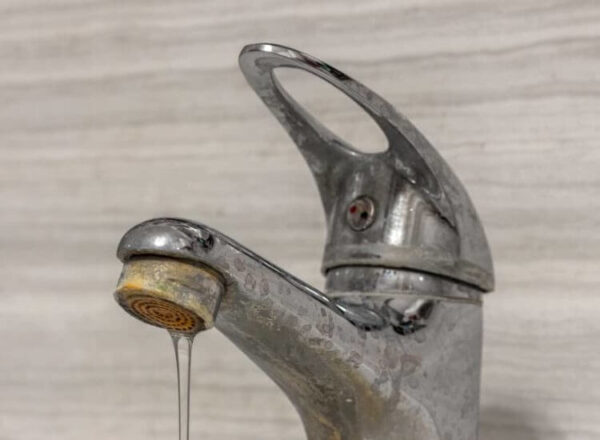Hard water is a common problem that affects many households. It is caused by high levels of minerals, such as calcium and magnesium, in the water supply. While these minerals are not harmful to human health, they can cause a variety of problems for appliances, such as reduced efficiency, shortened lifespan, and costly repairs. However, there are steps that can be taken to prevent these problems and protect your appliances from the harmful effects of hard water.
Problem: Buildup of Mineral Deposits
One of the most common issues caused by hard water is a buildup of mineral deposits in appliances that use water. This includes items such as washing machines, jacuzzis, refrigerators with filtered water, dishwashers, and water heaters.
These mineral deposits can clog pipes and restrict water flow, reducing the efficiency of the appliance and increasing energy costs. In addition, the buildup of minerals can also cause damage to the heating elements of appliances, leading to costly repairs or the need to replace the appliance altogether.
Solution: Installing a Water Filter
To prevent the buildup of mineral deposits, it’s important to install a reverse osmosis water filter. This filter is a device that removes the minerals from the water supply, preventing them from causing damage to appliances. This is especially important for appliances that use a lot of water, such as washing machines and dishwashers. When choosing a water filtration system, it’s important to select one that is the right size for your household and your appliances.
- Regular Cleaning and Maintenance
Another effective way to protect appliances from hard water damage is to regularly clean and maintain them. This includes cleaning the filters and screens on washing machines and dishwashers, and descaling the heating elements of water heaters. Use cleaning products and devices designed for cleaning and descaling appliances that are subject to hard water.
Regular maintenance can help to remove mineral buildup and prevent damage to the appliance. Be sure to replace sacrificial rods in water heaters to prevent corrosion of the tank. Household water filters should be carefully monitored to ensure that the filter is always operating correctly.
It’s also a good idea to check the manufacturer’s recommendations for maintenance on all machines and appliances and follow them closely. High-efficiency washing machines or jacuzzis may have special considerations.
- Detergent and Water Temperature
Additionally, to prevent damage to your appliances, you should use only the recommended amount of detergent and use detergents that are specifically formulated for use with hard water. This can help to prevent the buildup of mineral deposits and prolong the lifespan of your appliances. Without this prevention, minerals can clog up moving parts or tubes, leading to expensive failures and repairs.
It’s also important to be mindful of the water temperature when using appliances. Hard water can cause damage to appliances when used at high temperatures. It’s best to use cool water when running appliances such as washing machines and dishwashers. Modern detergents don’t require hot water to be effective.
- Regular Water Testing
Finally, it’s a good idea to have your water tested for hardness on a regular basis. This will help you to identify any changes in the hardness of your water supply and take steps to protect your appliances accordingly.
Even with a household water filter, it is important to test the filtered water every few years to ensure that your water has the correct mineral balance. It can be difficult to tell if your water is hard or soft, but it’s important to figure this out before an appliance breaks down.
Hard water can cause a variety of problems for appliances, including reduced efficiency, shortened lifespan, and costly repairs. However, there are steps that can be taken to prevent these problems and protect your appliances from the harmful effects of hard water. By taking these steps, you can ensure that your appliances are protected and running efficiently for years to come.

